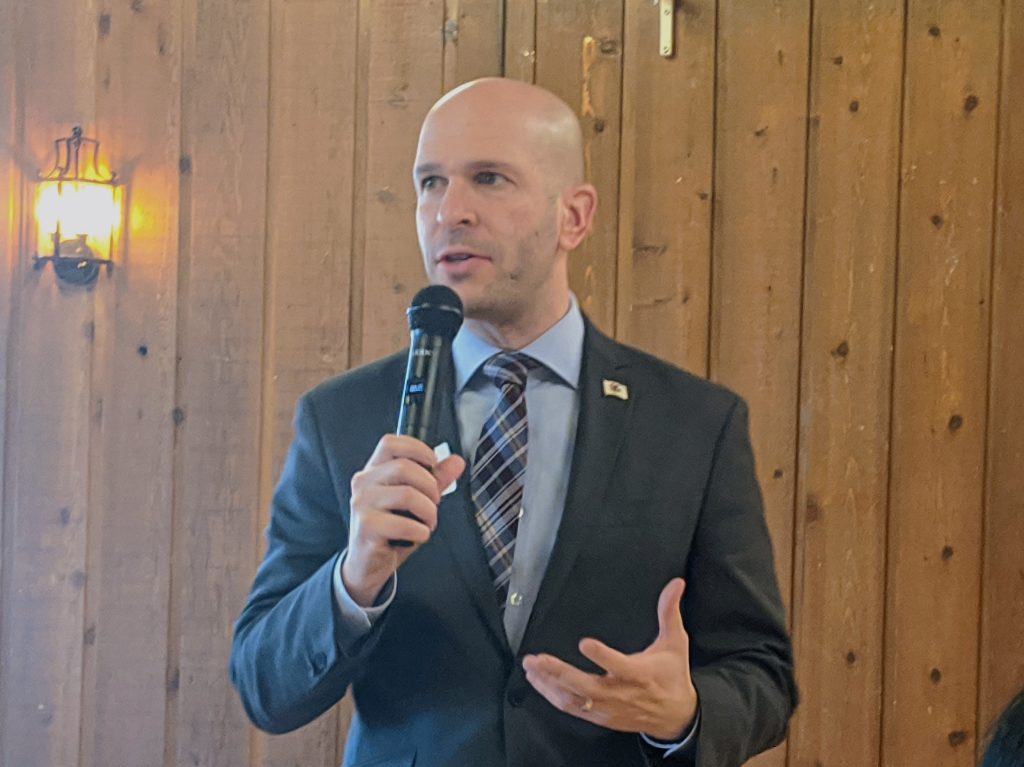Earlier this year, Illinois State Rep. Bob Morgan helped usher in new legislation that will allow more communities to build walking and biking infrastructure in the Chicago region.
The bill that Rep. Morgan co-sponsored — HB 2950 — allows the state and collar counties to spend gas tax funds on walking and bicycling infrastructure like sidewalks and bike lanes. Before this bill, gas tax revenue only went toward new roads.
Active Trans worked with Rep. Morgan, as well as other legislators and various county agencies, to score this legislative win. Active Trans testified before House and Senate committees and organized advocates to file witness slips before key votes.
Gov. J.B. Pritzker signed the bill in late summer.
Rep. Morgan represents the 58th District, which includes a number of North Shore suburbs such as Lake Bluff, Highland Park, Deerfield, Lake Forest, and North Chicago among others.
He recently spoke with Active Trans about why this new law is crucial to bringing more walking and bicycling opportunities to Illinois.
Why did you decide to work on this bill? Why is it important for your district?
Lake County Transportation Department originally raised this issue, and I was happy to sponsor HB2950, which allows the collar counties the option to use locally generated revenues on infrastructure for shared-use paths, sidewalks, and bike paths. Residents in my district and the surrounding areas value biking and walking paths, and this legislation provides local governments with the ability to invest in these options.
How would you evaluate the region’s current walking and biking infrastructure, and how can this bill help improve it?
Historically, we’ve prioritized automobile transportation and, consequently, there is a lack of biking and walking paths in many areas. By taking a more holistic view of transportation, this bill can help improve the amount of biking and walking infrastructure in our communities.
What kind of response did you get from your colleagues and constituents to this idea? Do people recognize walking and biking as a healthy and sustainable form of transportation?
Biking and walking aren’t partisan issues, and I’m proud the bill received large bipartisan majorities in both chambers of the General Assembly. Numerous constituents have reached out to my office in support of this legislation and fully recognize the environmental and health benefits of walking and biking.
You’ve talked about this as an environmental bill. How can more walking and biking be part of the solution to the climate crisis?
Data now shows that the transportation sector is the largest source of carbon emissions in Illinois. More walking and biking infrastructure can be part of a virtuous cycle to create more sustainable communities.
Every little bit helps in the struggle against climate change. Additional safe, high-quality bike and pedestrian corridors to desirable destinations will hopefully mean more people will choose to walk or bike in our communities.
Photo courtesy of Rep. Morgan.

